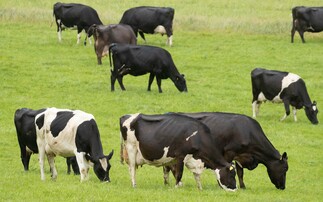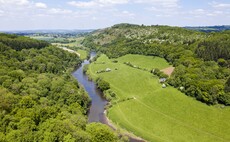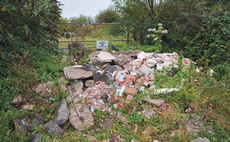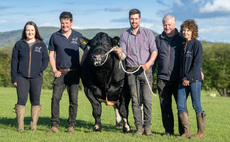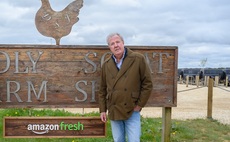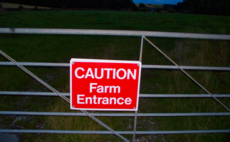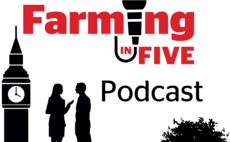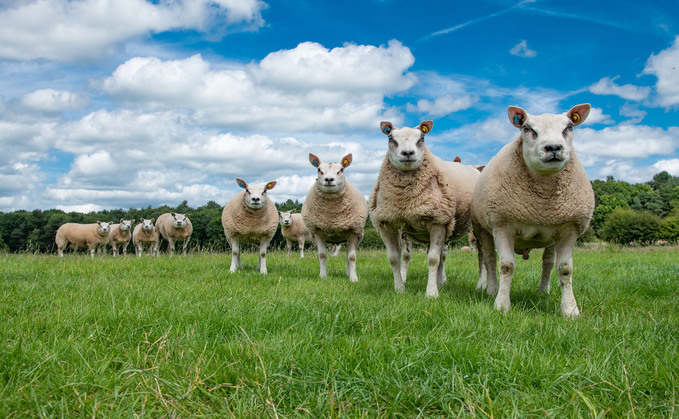
"It moves me to tears hearing how challenging it is for our farmers at the minute."
Bluetongue has continued to be detected in the UK with at least 20 counties returning a positive case.
As of November 26, three cattle were confirmed positive in the restricted zone in East Sussex following a non-negative pre-movement test.
Three bovines were also confirmed positive in Hampshire located outside the restricted zone after being traced from a premises on the Isle of Wight. Defra said the animals had been moved before the restricted zone was put in place. The premises has been placed under restriction and the other animals on the premises will be assessed to ensure there has been no local transmission.
According to Government figures, 14 cases of BTV-3 have been detected in premises which are now outside the current restricted zone in Bath and North East Somerset (BANES), Shropshire, Cheshire, Cumbria, Anglesey, Gwynedd, North Yorkshire and Cornwall.
The Government has placed counties including Bedfordshire, Berkshire, Buckinghamshire, Cambridgeshire, East Yorkshire, Essex, Greater London, Hampshire, Hertfordshire, Kent, Leicestershire, Lincolnshire, Norfolk, Northamptonshire, Nottinghamshire, Suffolk, Surrey and Sussex into a restricted bluetongue zone.
What is bluetongue?
Defra said bluetongue is a notifiable disease caused by infection which can affect ruminants, such as sheep, cattle, goats, deer, and camelids.
Bluetongue can be spread by certain species of biting midges, through the movement of infected animals and animal products (such as blood and germinal products including semen, eggs, ova and embryos) within the UK and through imports, and infected pregnant animals transmitting the virus to their young.
Signs of bluetongue
The Government has provided the following information on the signs of bluetongue.
Sheep
- Ulcers or sores in the mouth and nose
- Discharge from the eyes or nose and drooling from mouth
- Swelling of the lips, tongue, head and neck and the coronary band (where the skin of the leg meets the horn of the foot)
- Red skin as a result of blood collecting beneath the surface
- Fever
- Lameness
- Breathing problems
- Abortion, foetal deformities and stillbirths
- Death
Lambs
- Lambs born small, weak, deformed or blind
- Death of lambs within a few days of birth
- Stillbirths
Cattle
-
Lethargy
-
Crusty erosions around the nostrils and muzzle
-
Redness of the mouth, eyes, nose
-
Reddening of the skin above the hoof
-
Nasal discharge
-
Reddening and erosions on the teats
-
Fever
-
Milk drop
-
Not eating
-
Abortion, foetal deformities and stillbirths
-
Adult cattle may be infectious for several weeks while showing little or no sign of disease. They are often the preferred host for biting midges (the vector of bluetongue virus).
Calves
-
Calves born small, weak, deformed or blind
-
Death of calves within a few days of birth
-
Stillbirths
What does bluetongue look like?
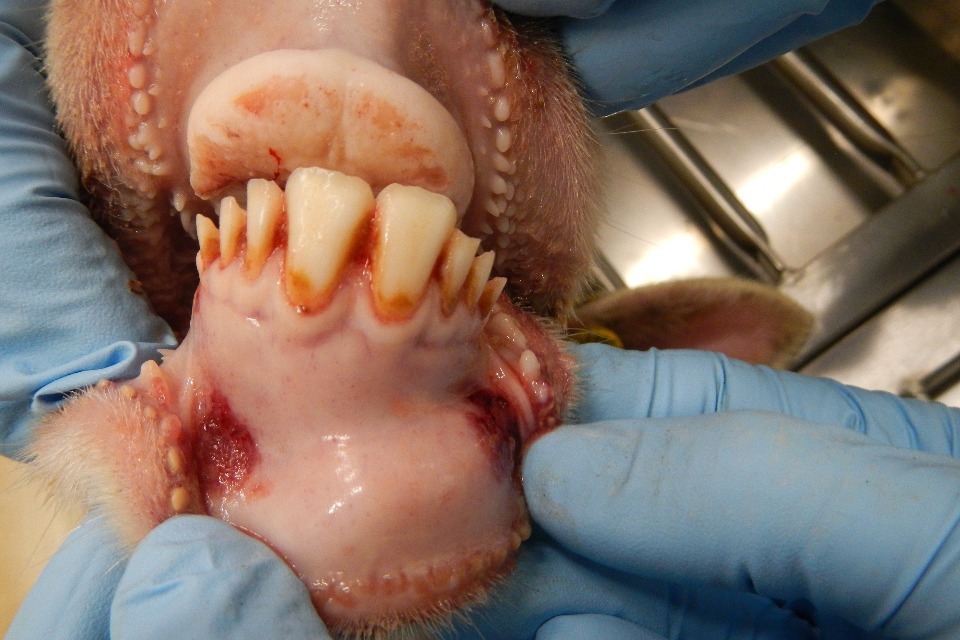
(The Pirbright Institute)
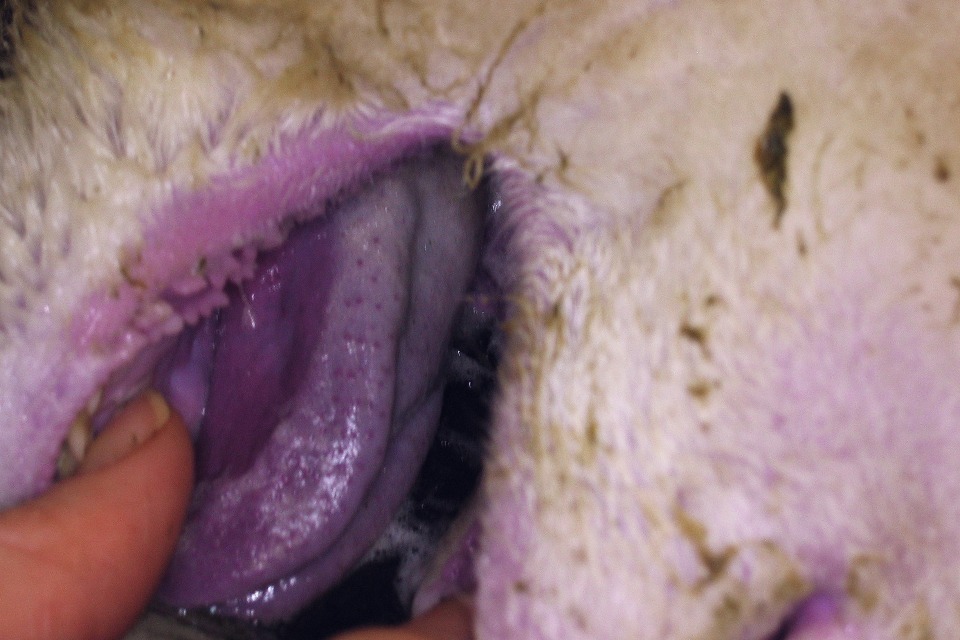
Preventing bluetongue
- Responsibly sourcing livestock
- Remaining vigilant to signs of disease
- Housing animals in buildings that keep out biting midges – this is especially important at dawn and dusk
- Maintaining good hygiene and biosecurity on your premises
- Not allowing farm dogs, cats or pets to eat, chew on or play with potentially infected materials (such as aborted material and afterbirth)
- Vaccinating your animals with a suitable authorised vaccine
Podcast
Earlier this year, Dairy Farmer editor Katie Jones spoke with Mel McPherson, of Avon Farm Vets in Wiltshire, about a potential rise in cases of Schmallenberg.
And similarly with bluetongue, there could potentially be a spike in cases if biting midge activity increases due to warmer weather.
Areas currently affected by bluetongue
Suffolk, Kent, Norfolk, Surrey, Lincolnshire, East Riding of Yorkshire, Cambridgeshire, Somerset, Devon, Hertfordshire, Greater London East, West Sussex (as of September 23).
Government advice
The UK's Chief Veterinary Officer Christine Middlemiss has stressed the current restriction zones put in place in England were helping to tackle the disease at this current time.
She said: "I know it makes life difficult for people in the restriction zone, but it really does stop the progression of the disease."
Deputy UK Chief Veterinary Officer Ele Brown said: "As the number of bluetongue cases continues to rise in England and northern Europe, we are taking further action to extend the restriction zone to mitigate the spread of the disease.
"Whilst we appreciate restrictions have an impact, it's vital all farmers and keepers within bluetongue control zones adhere to the restrictions and only move animals when it's absolutely essential to prevent the disease spreading to their herds.
"We are committed to working with everyone affected and urge people to report livestock they suspect have the disease.
"We will continue to keep control zones under review."
Animal and Plant Health Agency's chief executive Jenny Stewart said: "Since the first BTV-3 case for this season was detected last month, case numbers have continued to rise, and I want to remind keepers of the importance of monitoring their livestock and taking up free testing where necessary.
"Scientists, vets and field teams from the Animal and Plant Health Agency are working hard to help tackle bluetongue virus and ensure farmers are kept up to date and supported."
Vaccines
Defra has granted permission for three unauthorised bluetongue vaccines to be used in England.
But farmers could have to wait another month until a bluetongue vaccine could be available for use on farm.
Ceva has announced its bluetongue serotype 3 (BTV-3) vaccine, BLUEVAC-3, could be available to help farmers dealing with 'severe economic losses' from Government restrictions by mid-October at the earliest.
How can you report bluetongue?
Farmers should remain vigilant and, as a legal requirement, report any suspicious signs of the disease in their livestock to Defra.
This can be done by calling the Defra Rural Services Helpline on 03000 200 301.
In Wales, contact 0300 303 8268. In Scotland, contact your local Field Service Office.
Nearly 20 counties now placed in a bluetongue restriction zone
Bluetongue has continued to be detected in the UK with more than 25 counties returning a positive case.
As of October 11, APHA said there have been 143 confirmed reports of the virus on farms in England and Wales since August 26 in cattle and sheep.
The Government has placed 18 counties into a restricted zone which covers Bedfordshire, Berkshire, Buckinghamshire, Cambridgeshire, East Yorkshire, Essex, Greater London, Hampshire, Hertfordshire, Kent, Leicestershire, Lincolnshire, Norfolk, Northamptonshire, Nottinghamshire, Suffolk, Surrey and Sussex.
How concerned are farmers about Bluetongue?
Around 22% of farmers of ruminants are prepared to use a Bluetongue vaccine, according to new research from Kynetic.
It said it had asked dairy, beef and sheep farmers on its National Farm Research Unit Farmer Panel how concerned they were about bluetongue.
14% of UK dairy farmers were concerned about bluetongue, while 22% would use a vaccine.
For beef, just 10% were concerned but 22% would still use a vaccine.
11% of sheep farmers were concerned with 23% willing to use a vaccine.
Second case of bluetongue identified in Wales
A farm in Wales has recorded a second case of bluetongue.
APHA confirmed the case had been identified in Anglesey on Wednesday (October 2) from an animal which had moved to the area from the East of England.
On Friday (September 27), Wales' Deputy-Chief Veterinary Officer (DCVO), Gavin Watkins, announced the country's first case of the virus from animals which had entered Gwynedd from the East of England.
Yorkshire and Lincolnshire farms now in bluetongue restricted zone
Parts of Lincolnshire and Yorkshire have now been placed under a restricted bluetongue zones following an increase in cases.
The Government said it had revoked 20km Temporary Control Zones (TCZs) around affected premises in both counties on Tuesday (September 17) after it found evidence the virus was transmitting locally.
APHA said the TCZs will be replaced by a larger restricted zone area covering East Riding of Yorkshire and part of Lincolnshire which now restricts the movement of livestock without an authorised licence.
Read more of the story here
Financial consequences of bluetongue restrictions could see Suffolk farmer £50,000 out of pocket
A farmer in Suffolk has called on the Government to support food producers who are on the 'front lines' of bluetongue after claiming current restrictions have placed a 'huge toll' on farmers' businesses and well-being.
Sudbury farmer Stephen Cobbald has claimed he could lose upwards of £50,000 this year due to operating a business in a bluetongue restriction zone.
Despite having zero confirmed cases on farm, Mr Cobbald said it has been 'impossible' to sell his 250 pedigree Suffolk herd due to APHA's current restrictions on sheep movements.
Read more of the story here
Bluetongue concerns placing a 'heavy burden' on farmers' mental health
Bluetongue restrictions have placed a toll on the mental health and well-being of farmers, according to those working in areas impacted by the disease.
Graham Miles, an agricultural chaplain for Suffolk, said the rising cases of the airborne virus in England has placed a heavy burden on farm businesses, with some farmers claiming they have lost 'thousands of pounds' due to not being able to take their livestock to market.
"This awful disease is causing farmers nothing but stress and anxiety," he added.
"Farmers who speak to me say they are struggling to carry on.
"It moves me to tears hearing how challenging it is for our farmers at the minute."
Read more of the story here
First bluetongue case reported in Essex and Kent
The first reported case of bluetongue has been found on farms in Essex and Kent for the 2024/25 vector season.
On August 30, the UK's Chief Veterinary Officer Christine Middlemiss replaced 20km Temporary Control Zones in Norfolk and Suffolk with restriction zones, which was extended into Essex without a case being detected.
Defra said farmers could be breaking the law if they do not report bluetongue.
Read more of the story here
Bluetongue cases continue to increase
Bluetongue cases have once again risen across the UK this week with the East of England continuing to be the focus of the outbreak.
In a bid to stem the spread, the Secretary of State for Defra has authorised the use of three bluetongue serotype 3 (BTV-3) vaccines.
The move was welcomed by the National Sheep Association with chief executive Phil Stocker saying it was a ‘necessary step' to help control the disease.
Read more of the story here
Bluetongue case identified at farm in North East Lincolnshire
Bluetongue has been detected at a farm in Lincolnshire.
APHA confirmed the case had been detected in North East Lincolnshire after surveillance on September 10.
The Government body said a 20km Temporary Control Zone (TCZ) has been placed around the affected farm.
Read more of the story here
Nature reserve confirms case of bluetongue
A nature reserve in Yorkshire has announced an isolated case of bluetongue serotype-3 (BTV-3) in its Highland cattle herd.
The Yorkshire Wildlife Trusts' Spurn National Nature Reserve, in the village of Kilnsea, confirmed the airborne virus had been found in a single Highland cattle on Friday (September 6).
APHA has placed a 20km Temporary Control Zone (TCZ) around East Yorkshire following a case found in Withernsea on September 4.
Read more of the story here
Welsh Government 'considering' future role of bluetongue vaccine
Wales' Chief Veterinary Officer, Richard Irvine, has urged livestock farmers in Wales to be alert to signs of bluetongue, with the Welsh Government 'considering the future role of vaccination in Wales.'
It is after confirmation of new cases of bluetongue virus in England, with Defra announcing this week the emergency use of unauthorised BTV-3 vaccine, under licence, in the high risk areas of the country.
Bluetongue is caused by a virus that is primarily transmitted by certain species of biting midges. It affects ruminants including cattle, goats, sheep and deer and camelids such as alpacas and llamas. Bluetongue does not affect people or food safety.
Read more of the story here
Bluetongue spreads to Yorkshire farm after case detected in bull
A 20km Temporary Control Zone has been declared around a farm in the East Riding of Yorkshire after a case of bluetongue was detected in a bull.
APHA confirmed it had received a report of a positive case of the airborne virus on September 4 at a farm near Withernsea, along the English coast, just hours after Defra approved the use of three bluetongue vaccines in England.
To reduce onward transmission, the bull will be culled.
Read more of the story here
Defra grants emergency permit for bluetongue vaccines to be used in England
A vaccine for bluetongue sereotype-3 (BTV-3) could be available to farmers following a rise in cases of the disease on farms along the east of England.
Baroness Hayman of Ullock, Biosecurity Secretary confirmed on September 4 that she would grant three unauthorised BTV-3 vaccines to be used in England, subject to a licence.
She said the vaccines are suppressive, meaning they will reduce some of the clinical signs experienced by animals with the disease.
Read more of the story here
NSA responds to latest bluetongue situation in the UK
The NSA has warned British farmers to remain vigilant to the signs of bluetongue after nearly 50 reported cases were reported within the space of a week.
APHA confirmed new Restriction Zones (RZ) have been implemented in Essex, Suffolk and Norfolk to limit the spread of the virus from county to county.
Read more of the story here
Bluetongue restriction zone widened to Essex after new cases
A third county in the UK has been placed in a restricted zone after a number of bluetongue were detected close to the border in Suffolk.
APHA said Essex was placed in a Restricted Zone and Infected Area alongside Norfolk and Suffolk on September 2, which means livestock cannot be moved in or out of the counties.
The Government agency said the 20km Temporary Control Zones (TCZ) around farms with positive cases of the virus had been revoked on August 30 and instead replaced with the new restricted zones after confirming there was evidence that the virus was transmitting in Suffolk.
Read more of the story here
UK's Chief Veterinary Officer declares restriction zone in Norfolk and Suffolk after new bluetongue cases
More than 25 cases of bluetongue have been detected on Norfolk and Suffolk farms within the space of seven days.
On August 31, APHA confirmed five new incidents of the virus had been found at farm holdings across both counties following reports of a 'clinical suspicion'.
Read more of the story here
Isle of Man to maintain livestock import ban after new bluetongue cases
Farmers in the Isle of Man are still unable to import livestock into the Isle of Man after new cases of bluetongue have been detected in the South of England.
The Isle of Man's Government has confirmed its imports ban on sheep, cattle and goats, first introduced in November, would remain in place after four cases of the virus were detected in four sheep on Norfolk and Suffolk farms this week.
Read more of the story here












